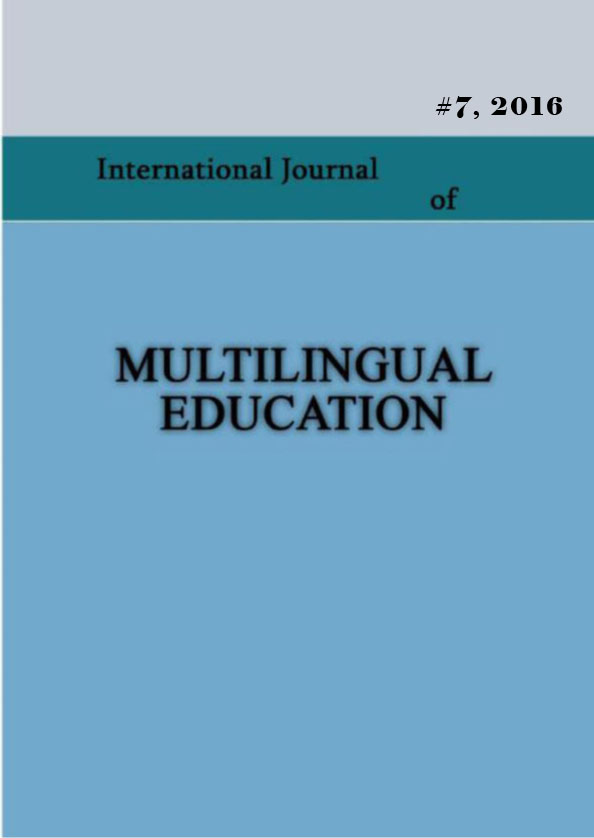Second / foreign language teachers' challenges and the ways of solutions
Keywords:
sociocultural and political context; foreign language teachers; SLEAbstract
The article presents the main challenges, which second language teachers have to overcome to perfect language teaching process and enrich new methods and approaches. The opinions expressed in the article are based on theoretical study and on my professional experience.
Challenges faced by foreign language teachers depend on:
- the sociocultural and political context of the language training;
- what is students’ composition (age, social and economic status);
- students' mood and willingness to study the language, the target language status;
- if the language, taught by the teacher is his/her native language or not;
- in general, what are educational and, in particular, linguistic education traditions in a particular
In our article, we will try to show a few, in our opinion, significant challenges, that formally appear in almost all cases of teaching a second language and mark the required skills and knowledge of a second language teachers to deal with the problems.
References
Berninger, V.W., Dunn, A., Lin, S-J. C., &Shimada, S. (2004). School-evolution: scientist- practitioner educators creating optimal learning environments for all students. Journal of Learning Disabilities, 37(6), 500-508
http://multilingualeducation.org/storage/uploads/articles_contents/150122053812.pdf). http://www.victoria.ac.nz/lals/about/staff/publications/paul-nation/foreign-language_1125.pdf Ketevan Gochitashvili, THE ROLE OF IT TECHNOLOGIES IN THE PROCESS
Lawes, S. (2003). What, when, how and why? Theory and foreign language teaching. Language Learning Journal, Special Edition, 28, pp. 22-28.
Meghan Morahan.
http://www.labschool.pdx.edu/PD_Mini_Modules/images/8/81/MorahanL2inL1class.pdf ) MurielSaville-Troike 2012, Introducing Second Language Acquisition, p. 188).
OF FOREIGN/SECOND LANGUAGE EDUCATION,
PatriciaSierra, Humanizing Language Teaching Magazine for Teachers and Teacher Trainers; http://www.hltmag.co.uk/jun09/sart06.htm.
Samovar Larry A., Porter Richard E, &Jain Nemi C; Understanding intercultural communication, WadsworthPub. Co. (Belmont, Calif. 1981, p. 5
Valdés, G. (1995). The teaching of minority languages as academic subjects: Pedagogical and theoretical challenges The Modern Language Journal, 79, 299-328.
Tang, J. (2002). Using L1 in the English classroom. EnglishTeachingForum, 40(1),36-43.
Published
How to Cite
Issue
Section
License
Copyright (c) 2016 Ketevan Gochitashvili

This work is licensed under a Creative Commons Attribution-NonCommercial 4.0 International License.
Copyright (c) - Authors who publish with this journal agree to the following terms: Authors retain copyright and grant the journal the right of first publication with the work simultaneously licensed under a Creative Commons Attribution-Noncommercial 4.0 International License, which allows others to share the work with an acknowledgement of the work's authorship and initial publication in this journal. Authors are permitted and encouraged to post their work online (e.g., in institutional repositories or on their personal website) prior to and during the submission process, as it can lead to productive exchanges, as well as earlier and greater citation of published work (see The Effect of Open Access). Authors may enter into separate, additional contractual arrangements for the non-exclusive distribution of the journal's published version of the work (e.g., post it to a repository or publish it in a book), with an acknowledgement of its initial publication in this journal.

